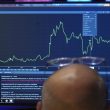by Ashok Bhatia, CFA, Deputy Chief Investment Officer—Fixed Income, Neuberger Berman
The Annual IMF Meetings in Marrakech raised an interesting question: Is the whole world a developing economy now—and can it pay for that development?
Back at my desk after attending the Annual Meetings of the Boards of Governors of the World Bank Group (WBG) and the International Monetary Fund (IMF) in Marrakech, Morocco, I have been reflecting on the big themes.
These meetings are a key event in the economic calendar. They are where economic actors and institutions from the “Global South” meet those from the “Global North,” where the emerging world talks policy with the developed world, and where low-, middle- and high-income countries get to thrash out their challenges together.
The location, therefore, felt apt. The last WGB/IMF Meetings held in Africa were 50 years ago, in Kenya—and the continent is at the center of a lot of the issues that were under discussion.
And while it’s too much to say that the entire world now looks like a developing economy, the meetings repeatedly emphasized that the developed world increasingly faces development, environmental, financing and security issues that the developing world has long been used to. “Developing world” challenges are becoming shared and global—and the resources to tackle them are becoming more constrained.
Debt Sustainability
Debt sustainability is never far from the conversation at these meetings, but this year it topped the agenda.
As a continent of frontier markets and some of the world’s poorest economies, Africa is no stranger to the question. There are new strains among formerly solid bond issuers like Nigeria, Ghana and Ethiopia. My colleague, Rob Drijkoningen, returned from the conference writing about the threat of higher-for-longer global interest rates to emerging markets debt.
For the first time, however, delegates could be heard questioning the sustainability of developed-world government debt—even that of the U.S. There was little talk of “crisis.” But there was talk of higher-for-longer rates on the debts assumed during the global financial crisis and COVID-19, and how they are raising interest costs, widening deficits and creating tension between monetary and fiscal policy worldwide.
Climate Change
Nonetheless, there was little appetite for spending cuts or tax hikes.
One reason, we believe, is broad acceptance that the next 25 years are likely to require huge investment: Behind debt sustainability, mitigating and adapting to climate change was perhaps the most important theme of the conference.
Once again, Africa is a front line: The location of early wars for water and other resources, the place where drought and high wheat prices triggered the “Arab Spring,” a potentially leading supplier of the rare earths necessary for worldwide electrification, a low-emission economy bearing the brunt of other countries’ high emissions.
Discussion focused on how to achieve growth in the emerging world that continues to lift people out of poverty in an environmentally sustainable way.
Notably, however, the talk was not only about the money that the developed world can provide for renewable energy and electrification infrastructure in developing countries (ideally World Bank and other public-sector capital supporting additional private investment). Delegates also observed that, by developing this infrastructure at home, high-income countries can cut global emissions and ease some of the limits on growth in poorer countries.
Defense and Security
Another reason spending cuts were not high on the agenda is that the world is becoming a more dangerous place.
Africans know this well enough, being especially exposed to the grain shortages caused by the war in Ukraine. Indeed, Marrakech sits at the western end of a huge arc of instability around Europe, which begins with the “Arab Spring” states and those to the immediate south newly plagued by coups, before sweeping through the Middle East (Hamas attacked Israel while the WBG/IMF meetings were taking place) and ultimately up to Ukraine and Belarus.
Given the news and location, it was not surprising to see recognition that spending on defense and security—including military, food, energy and technological security—is likely to consume more of the world’s economic resources.
Growth and Productivity
To sum up, the whole world faces higher climate change and security spending, and carries a lot of expensive debt, and the usual sustainable development needs haven’t gone away. As the title of the conference’s IMF seminar put it, “How to Pay for It All?”
If the answer is not spending cuts or tax hikes, it may have to be improving tax-raising efficiency, enhancing capital markets and, especially, raising growth and productivity. Again, in our view, Africa felt like the right place to discuss these challenges.
Some developed and many developing countries could still do much more to bring their own citizens into the workforce, such as through improved childcare access. But most delegates recognized that there are also tough conversations to be had on both immigration and fostering entrepreneurialism.
Morocco and North Africa are very much the front line of this debate for Africa’s neighbors in Europe. And one cannot attend a conference like this, with so much exposure to small local businesses and start-ups, and not be struck by the innovation and entrepreneurialism that drives this continent’s growth.
On the Fringes
All these themes were echoed in conversations we hosted on the fringes of the meetings.
Clients, central banks, public and private institutions, local business leaders—many were still internalizing the implications of stickier inflation and higher rates for longer.
We received a lot of questions from investors about U.S. commitment to the climate transition, given the polarization of the “ESG” debate. Private markets were a key topic: They are seen as an opportunity at the current stage of the economic cycle, as well as an alternative to high public-market valuations; but they are also seen as the seedbed for productivity-enhancing innovations, which the whole world could need if it is to grow sustainably over the next generation.
In short, the sense that there is a developed world and a developing world is dropping away as we recognize that sustainable, secure development is a necessity in every country. On the border between Europe and Africa, the WBG/IMF meetings were the ideal gathering, in the ideal location, to begin to understand what that means.
*****
In Case You Missed It
- NAHB Housing Market Index: -4 to 40 in October
- China Q3 GDP: +4.9% year-over-year
- U.S. Retail Sales: +0.7% month-over-month in September
- U.S. Building Permits: -4.4% to SAAR of 1.473 million units in September
- U.S. Housing Starts: +7.0 % to SAAR of 1.358 million units in September
- U.S. Existing Home Sales: -2.0% to SAAR of 3.96 million units in September
- Japan Consumer Price Index: National CPI rose 3.0% year-over-year and Core CPI rose +2.8% year-over-year in September
What to Watch For
-
- Monday, October 23:
- Japan Purchasing Managers’ Index
- Tuesday, October 24:
- Eurozone Purchasing Managers’ Index
- Wednesday, October 25:
- U.S. New Home Sales
- Thursday, October 26:
- European Central Bank Policy Meeting
- U.S. Durable Goods Orders
- U.S. Q3 GDP (Preliminary Estimate)
- Friday, October 27:
- U.S. Personal Income & Outlays
- Monday, October 23:
Investment Strategy Group















